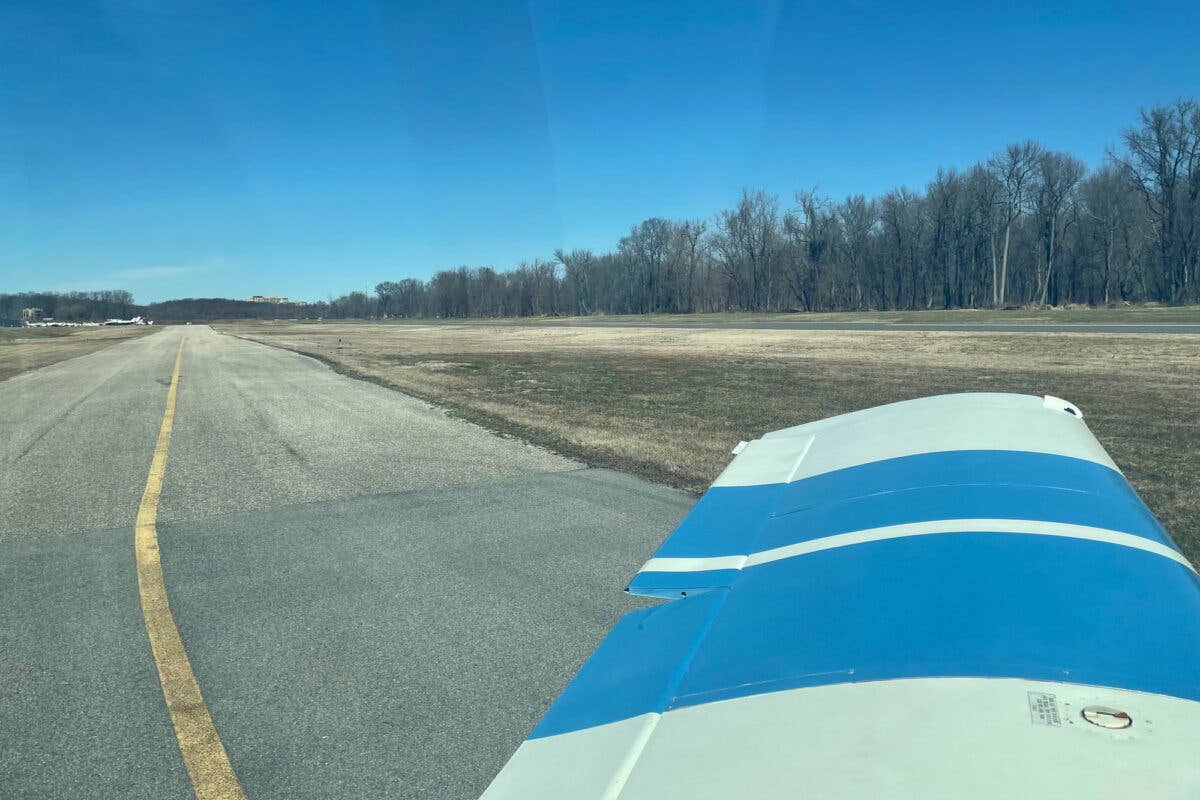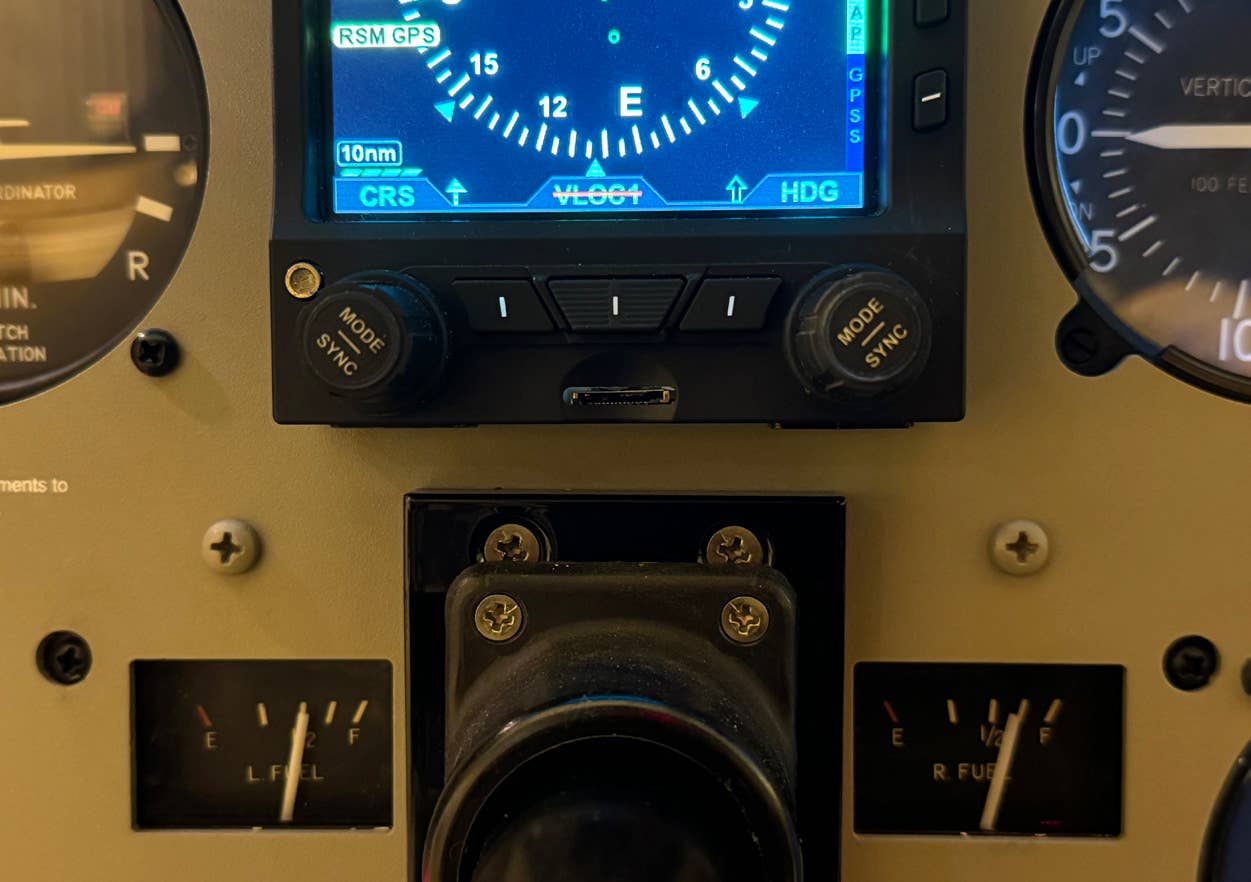
“Hey, Dick, your colonoscopy went great.” So says my friend and expert colorectal surgeon. I am just coming out from the sweet embrace of Propofol, the magic elixir that killed Michael Jackson. Suffused with a sense of well-being, I look out over the sparkling waters of Tampa Bay lit by a warm December sun. My wife, Cathy, smiles.
“But I did feel a prostatic nodule. I looked back to my notes from five years ago, and there wasn’t a nodule then, so you should have it looked into.” Thus began an adventure into the maw of modern medicine and the workings of the FAA when it comes to a first-class medical certificate.
First, some basic prostate facts for our readers (ladies, this will take just a minute): About 239,000 men are diagnosed with prostate cancer every year in the United States, but only about 30,000 die of the disease. So we have a common disorder that infrequently kills patients. (Of course, given the age of men that are diagnosed with prostate cancer, many may die of others things. Death and taxes!) Since prostate cancer becomes more prevalent in men the older they get, there has been controversy about using the prostate-specific antigen (PSA) screening test. Is it possible that many men are treated to benefit the urologist or radiation therapist rather than the patient?
With all this in mind, I had a PSA test, and I was re-assured when it was normal. Because of the Christmas holidays, it was almost three weeks before I met with a careful, thoughtful urologist named Dr. David Hernandez. He examined me — this time I was awake — and recommended a biopsy. This was scheduled for a week hence.
A prostate biopsy is actually 12 different “passes” with a biopsy needle attached to an ultrasound head. The device looked innocent enough sitting on the counter in the biopsy room, but when it was inserted, it felt like I had the wrong end of a baseball bat shoved up there. Each time he fired the Louisville Slugger, I could feel it deep, deep down in the pelvis.
Another wait for results — almost two weeks. The news was not good; it was a cancer and not a trivial one. So much for the PSA test. For a cancer surgeon, this was an eerie, somewhat surreal experience. A cancer doctor catches cancer. Now I was on the other side of the knife.
I’ll leave out the description of searching for the right place and the right person to do the job. We settled on Dr. Vipul Patel of the Global Robotics Institute in Orlando, Florida. He and his team do a high volume of robotic prostatectomies, and I liked him immediately. He reassured me that he treats “a pilot a week,” so his team knew all about the magic words necessary to get my medical back.
Another wait of six weeks — once the prostate is disturbed by the biopsy, it needs to heal before you can schedule an operation. At 4 a.m. on a Monday in March, Cathy and I set out for Orlando. We were home fewer than 36 hours later. The physical recovery was surprisingly quick. The philosophical recovery was another matter. How do we all manage to take the extraordinary machinery whirring away flawlessly inside each of us for granted? Even though I had a professional awareness of this blithe ignorance, I found the concept to have even deeper meaning now that I had a bad cylinder.
If my life was to be shortened, did I want to continue as a cancer surgeon or did I want to do something else, such as fly airplanes? I know my father waited to retire from surgery until he was 71. He had always wanted to work in a hardware store, but by the time he retired, it wasn’t in the cards. At 67, could I get my medical back and do more flying? I had enjoyed the Lear 31A at Elite Air in St. Petersburg, Florida, immensely. Could I find a full-time flying job?
For that matter, when could I fly again? Was my first-class medical certificate still valid? I was feeling better and better. I went on the Internet to www.faa.gov. Within a few minutes, my head was uncomfortably rotating. After a good hour of searching I came upon the dreaded 61.53: "1. Operations that require a medical certificate. Except as provided in paragraph (b) of this section, a person who holds a current medical certificate issued under part 67 of this chapter shall not act as pilot in command, or in any other capacity as a required pilot flight crewmember while that person:
a. Knows or has reason to know of any medical condition that would make the person unable to meet the requirements for the medical certificate necessary for the pilot operation; or
b. Is taking medication or receiving other treatment for a medical condition that results in the person being unable to meet the requirements for the medical certificate necessary for the pilot operation.”
Now I was not feeling better. Was I “unable to meet the requirements”?
I fell finally to the FAA page called “Pilot Medical Certification Questions and Answers.” There I found a question entitled “What medical conditions does the FAA consider disqualifying?” A list of medical conditions, some psychiatric, followed. Substance abuse and dependency were mentioned, as was bipolar disorder. A personality disorder that is “severe enough to have repeatedly manifested itself by overt acts” seemed a reasonable disqualifying condition, as did “heart replacement.”
But nowhere could I find any cancer, much less prostate cancer, on the list. Was I legal to fly or not?
I sought the counsel of several good friends in aviation. Some are journalists; some are lawyers, some owners of Part 135 operations, some airline pilots. The answers were not identical. All agreed on two things: Don’t ever lie on your medical application, and a PSA test result of zero is required for a valid medical after treatment for prostate cancer.
But I predicted my PSA result would be zero, and I felt fine. Shouldn’t I be able to fly? Then I came across a statement from Dr. Warren Silberman, former manager of the FAA Aerospace Medical Certification Division (AMCD), in a Federal Air Surgeon’s Medical Bulletin. He said, “Once an airman has one of the forms of treatment [for prostate cancer], he must consider himself grounded pending review.”
A friend of mine put it more bluntly. “Do you want spin or fact? The fact is cancer is disqualifying. The spin is that cancer is not mentioned in the FARs, so how are you supposed to know?” He suggested I get a letter from my treating urologist, prove that my PSA test was zero and then contact the Regional Flight Surgeon in Atlanta. The Regional Flight Surgeon and the AMCD in Oklahoma City, not my aviation medical examiner, are the only ones who can grant approval.
What, I wondered, would be the chances of actually talking to somebody in the Regional Flight Surgeon’s office? My first call to the Atlanta office met with a voicemail recording. My second call was met with the pleasant voice of a secretary, who promised to see if “the doctor was in.” Seconds later, and to my stunned surprise, I found myself speaking with the delightful Dr. Susan E. Northrup. I was so taken aback that I just stammered away until, finally, I was able to construct a coherent sentence and speak it out loud. Far from sounding like some reproving bureaucrat, Dr. Northrup told me to round up my discharge summary, pathology report, those PSA test results and a letter from my urologist. She indicated that she knew my AME in Clearwater, Florida, and had even visited his office. (Dr. George Coupe is a legend in my part of the world. He’s 88 and still going strong. He’s my kind of guy.) Dr. Northrup seemed to like Dr. Coupe too. You should know that the FAA has since changed the decision considerations so that a medical for a pilot treated for prostate cancer without extracapsular disease may by issued by an AME.
Once Dr. Northrup had my stuff, she sent me an approved medical. I ran with it clutched tightly in my hand to Coupe, as if I had just won a Pulitzer Prize. Even though it was the end of the month and one more day of waiting would have granted me an extra month before I needed to renew, I got my electrocardiogram, peed in the cup and went out the door with a first-class medical dated the 31st of the month.
I was taking no chances.
We welcome your comments on flyingmag.com. In order to maintain a respectful environment, we ask that all comments be on-topic, respectful and spam-free. All comments made here are public and may be republished by Flying.

Sign-up for newsletters & special offers!
Get the latest FLYING stories & special offers delivered directly to your inbox






